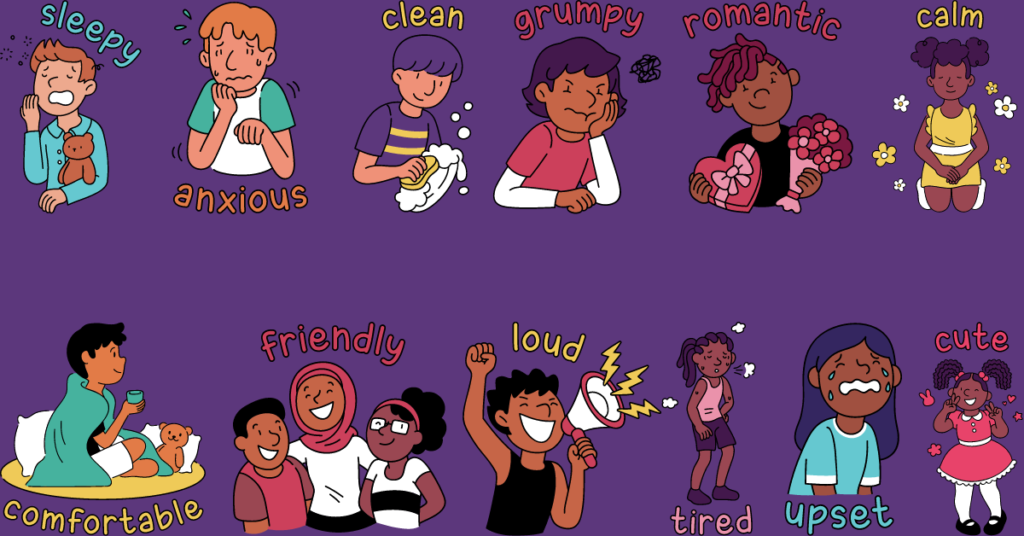
Adjectives are words that describe or modify nouns or pronouns. They provide additional information about the qualities, characteristics, or attributes of the noun or pronoun they modify.
Example: “He is a tall man.”
Explanation: In this sentence, “tall” is an adjective. It describes the quality of the noun “man.” The adjective “tall” provides information about the height of the man.
Adjectives can occur in various forms and can be categorized into different types:
- Descriptive Adjectives: Descriptive adjectives provide details and characteristics about a noun or pronoun.
Examples:
- Beautiful
- She has a beautiful smile.
- Tall
- The tall building stood in the distance.
- Friendly
- I met a friendly dog at the park.
- Delicious
- He ate a delicious meal.
- Interesting
- Come up with your own sentence.
- Comparative Adjectives: Comparative adjectives are used to compare two nouns or pronouns, indicating that one has more or less of a certain quality than the other.
Examples:
- Bigger
- This book is bigger than that one.
- Faster
- She runs faster than her brother.
- Smarter
- He is smarter than his classmates.
- More interesting
- The second movie was more interesting than the first.
- Small
- Come up with your own sentence.
- Superlative Adjectives: Superlative adjectives are used to compare three or more nouns or pronouns, indicating that one has the highest degree of a certain quality.
Examples:
- Tallest
- Mount Everest is the tallest mountain in the world.
- Fastest
- She is the fastest runner on the team.
- Smartest
- He is the smartest student in the class.
- Most interesting
- It was the most interesting movie I’ve ever seen.
- Biggest
- Come up with your own sentence.
- Demonstrative Adjectives: Demonstrative adjectives indicate or point out specific nouns or pronouns.
Examples:
- This
- This car is blue.
- That
- That house is old.
- These
- These cookies are delicious.
- Those
- Come up with your own sentence.
- Quantitative Adjectives: Quantitative adjectives indicate the quantity or number of a noun.
Examples:
- One
- I have one apple.
- Few
- There are few people in the park
- Many
- He has many friends.
- Several
- They bought several books.
- Some
- Come up with your own sentence.
- Interrogative Adjectives: Interrogative adjectives are used to ask questions about a noun or pronoun.
Examples:
- Which
- Which book do you prefer?
- What
- What color is your car?
- Whose
- Whose backpack is this?
- How many
- Come up with your own sentence.
- Proper Adjectives: Proper adjectives are formed from proper nouns and describe specific attributes or qualities.
Examples:
- American
- She loves American literature.
- Italian
- We enjoyed delicious Italian cuisine.
- Shakespearean
- He is a fan of Shakespearean plays.
- Victorian
- Come up with your own sentence.
Adjectives enhance our descriptions and provide more specific information about the nouns or pronouns in a sentence. They add depth and vividness to our language.